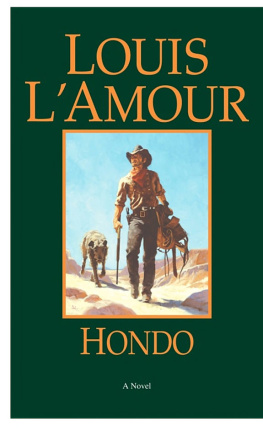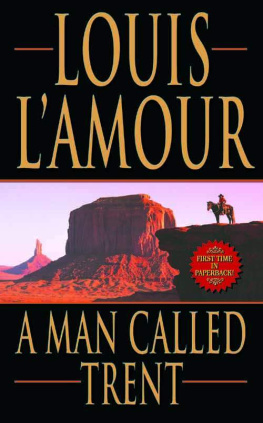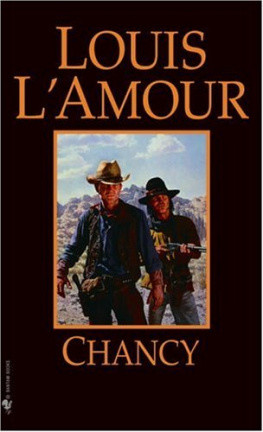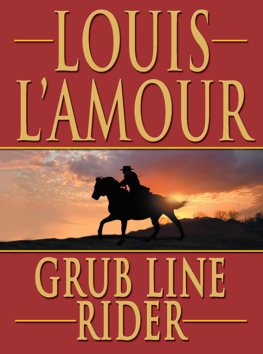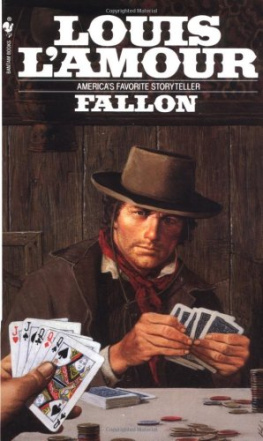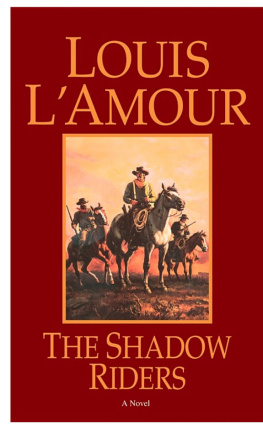Louis LAmour - Shalako
Here you can read online Louis LAmour - Shalako full text of the book (entire story) in english for free. Download pdf and epub, get meaning, cover and reviews about this ebook. year: 2003, publisher: Bantam, genre: Art. Description of the work, (preface) as well as reviews are available. Best literature library LitArk.com created for fans of good reading and offers a wide selection of genres:
Romance novel
Science fiction
Adventure
Detective
Science
History
Home and family
Prose
Art
Politics
Computer
Non-fiction
Religion
Business
Children
Humor
Choose a favorite category and find really read worthwhile books. Enjoy immersion in the world of imagination, feel the emotions of the characters or learn something new for yourself, make an fascinating discovery.

- Book:Shalako
- Author:
- Publisher:Bantam
- Genre:
- Year:2003
- Rating:5 / 5
- Favourites:Add to favourites
- Your mark:
- 100
- 1
- 2
- 3
- 4
- 5
Shalako: summary, description and annotation
We offer to read an annotation, description, summary or preface (depends on what the author of the book "Shalako" wrote himself). If you haven't found the necessary information about the book — write in the comments, we will try to find it.
Shalako — read online for free the complete book (whole text) full work
Below is the text of the book, divided by pages. System saving the place of the last page read, allows you to conveniently read the book "Shalako" online for free, without having to search again every time where you left off. Put a bookmark, and you can go to the page where you finished reading at any time.
Font size:
Interval:
Bookmark:
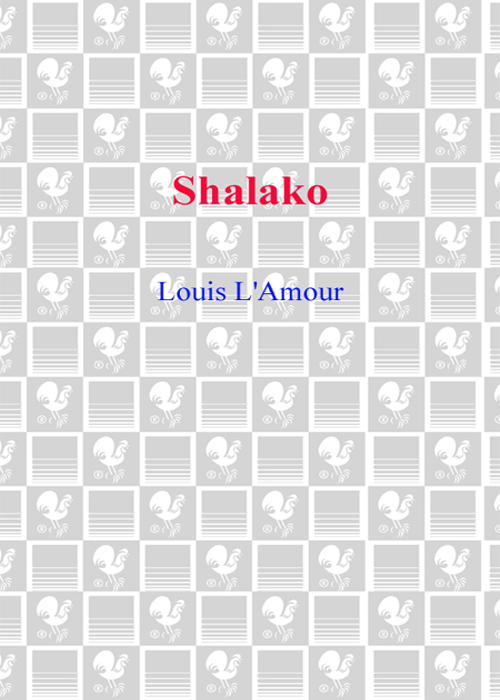
SHALAKO
Louis LAmour
B A N T A M B O O K S
Contents
To Casey
CHAPTER 1
F OR SEVEN DAYS in the spring of 1882 the man called Shalako heard no sound but the wind....
No sound but the wind, the creak of his saddle, the hoofbeats of his horse.
Seven days riding the ghost trails up out of Sonora, down from the Sierra Madre, through Apache country, keeping off the sky lines, and watching the beckoning fingers of the talking smoke.
Lean as a famine wolf but wide and thick in the shoulder, the man called Shalako was a brooding man, a wary man, a man who trusted to no fate, no predicted destiny, nor to any luck. He trusted to nothing but his weapons, his horse, and the caution with which he rode.
His hard-boned face was tanned to saddle leather under the beat-up, black, flat-crowned hat. He wore fringed shotgun chaps, a faded red shirt, a black handkerchief knotted about his throat, and a dozen scars of knife and bullet.
It was a baked and brutal land, this Sonora, sun-blistered and arid, yet as he sifted his way through the stands of organ-pipe cactus, prickly pear and cats claw, he knew the desert throbbed with its own strange life, and he knew those slim fingers of lifting smoke beckoned death.
He was a lone-riding man in a lonesome country, riding toward a destiny of which he knew nothing, a man who for ten long years had known no other life than this, nor wished for any other.
What else there was he had known before, but now he lived from day to day, watching the lonely sunsets flame and die, bleeding their crimson shadows against the long, serrated ridges. Watching the dawns come, seeing the mornings stir with their first life... and the land he rode was a land where each living thing lived by the death of some other thing.
The desert was a school, a school where each day, each hour, a final examination was offered, where failure meant death and the buzzards landed to correct the papers.
For the desert holds no easy deaths... hard, bitter, and ugly are the desert deaths... and long drawn out.
Merciless were the raw-backed mountains, dreadfully desolate the canyons, the white-faced ancient lakes were dust... traps where a man might die, choking horribly upon alkali or the ashen powder of ancient rocks.
For seven days Shalako heard no sound but that of his own passage, and then a gunshot bought space in the silence, a harsh whiplash of sound, followed after an instant by the shattering volley of at least four rifles.
The rifles spoke again from the sounding board of the rocks, racketing away down the canyons to fade at the deserts rim.
Motionless upon a sun-baked slope, he waited while the sweat found thin furrows through the dust on his cheeks, but there was no further sound, no further shot, nor was there movement within the range of his vision... merely the lazy circle of a buzzard against the heat-blurred sky.
If they had not seen him already they would not see him if he remained still, and Shalako had learned his patience in a hard school.
Movement attracts the eye, draws the attention, renders visible. A motionless object that blends with the surroundings can long remain invisible even when close by, and Shalako was not moving.
About him lay vast, immeasurable distances, pastel shadings of salmon, pink, and lemon broken by the deeper reds of rock or the darkness of cliff shadow. Overhead the sun was lost in a copper sky above the heat-waved reaches where all sharpness of outline melted in the shimmering movement of the air.
The innocent distance that lay before him was broken by hollows, canyons, folded hills, but it seemed an even, unbroken expanse from where he sat. There were cholla forests out there, scatterings of lava... a land where anything might be and something obviously was.
The notch in the hills toward which he was pointing held a pass through the mountains, and within the pass lay a waterhole.
His canteen was half-full and if necessity demanded it could be made to last another three days... it had done so before. In the desert a man learns to use water sparingly and to make a little cover a lot of distance.
The roan gelding was a mountain-bred horse and could survive on cholla or prickly pear if the spines were burned away, but water and grass lay within that opening in the hills, and Shalako had no intention of skirting the mountain unless circumstances insisted. Yet the sound of shots had come from that direction.
After a while he made, with sparing movements, a cigarette, his eyes holding on the far, blue mountains briefly, then surveying the country while he worked with the small, essential movements. He considered the possibilities, knowing that a desert offers less freedom of movement than at first seems likely. All travel in the desert, of man or animal, is governed by the need for water. Some animals learned to survive for days without water, but man was not one of these.
Four rifles... at least four rifles had fired that volley, and four rifles are not fired simultaneously unless fired at another man or men.
Sunset was scarcely an hour away, and the waterhole was at least that far distant.
It was unlikely that whoever fired those shots would, at this hour, ride farther than the nearest water. Therefore the chances were that the water toward which he was riding would be occupied by whoever had done that shooting.
On the slope where he had drawn up neither the roan gelding nor himself would be visible at any distance, so he waited a little longer, inhaling deeply of the sharp, strong tobacco.
Four men do not fire in unison unless from ambush, and Shalako had no illusions about the sort of men who attack from concealment, nor what their attitude would be toward a drifting stranger who might have seen too much.
Whatever of gentleness lay within the man called Shalako was hidden behind the cold green eyes. There was no visible softness, no discernible shadow left by illusion. He was a man who looked upon life with a dispassionate, wry realism.
He knew he lived by care and by chance, knowing the next man he met might be the man who would kill him, or the next mile might see his horse down with a broken leg... and a man without a horse in this country was two-thirds a dead man.
To his thinking those men who thought their hour was predestined were fools. Whatever else nature was, it was impersonal, inexorable. He had seen too much of death to believe it was important, too much of life to believe that the destiny of any creature was important to any but itself or those dependent upon it.
There was always life. Humans and animals and plants were born and died, they lived their brief hour and went their way, their places filled so quickly they were scarcely missed.
Only the mountains lasted, and even they changed. Their lasting was only an idea in the minds of men because they lasted a little longer than men. Shalako knew he would live as long as he moved with care, considered the possibilities, and kept out of line of any stray bullet. Yet he was without illusions; for all his care, death could come and suddenly.
The margin for error was slight. A dry waterhole, a chance fall, a stray bullet... or an Apache he missed seeing first.
Those who talked of a bullet with their name on it were fools... to a bullet all targets were anonymous.
Behind him to the east lay Mexico, but what trail he left back there only an Apache or a wolf might follow. Deliberately, he had avoided all known waterholes, keeping to the roughest country, seeking out the rarely used seeps or tinajas
Next pageFont size:
Interval:
Bookmark:
Similar books «Shalako»
Look at similar books to Shalako. We have selected literature similar in name and meaning in the hope of providing readers with more options to find new, interesting, not yet read works.
Discussion, reviews of the book Shalako and just readers' own opinions. Leave your comments, write what you think about the work, its meaning or the main characters. Specify what exactly you liked and what you didn't like, and why you think so.

